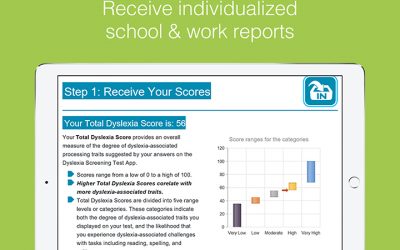When we had a clinic, some of the best study strategy advice came through talking to our gifted students…especially as we saw them over the course of years. Recently, I noticed a research paper by Reis et al. in Gifted Child Quarterly that had a number of great student insights that I thought would be fun to share. The first surprise I had reading the paper was to learn how many students had wished they had been formally taught study skills. Some were downright critical of the work they had done in LD pullouts in high school. “I will complain to this day about high school and how they don’t teach study skills…This is the first time in my freshman year that I had to […]
“LIKE” Terms in Algebra Don’t Let Words Get in the Way
Many students get confused about "like" terms in Math, but it's not their fault. The terminology is confusing. Purple Math has a nice page on this post. In Algebra, "like terms" refers to terms that have the exact same variable raised to the same power. WATCH YOUTUBE...
Community Q & A: What Program We Can Use for Weak Vocabulary [Premium]
Q: My 15 year old daughter was recently found to be severely dyslexic. Her public high school has set her to enroll her in an online high school because her local school can’t meet her needs. We’ve been told that her vocabulary is weak. What program would you recommend? A. The answer to your question may depend on what structured literacy program she begins and what ways she learns best. Most structured literacy programs have a vocabulary component which is interwoven with phonemic awareness instruction in the forms of multisensory practice and books based on vocabulary and letter / letter-blend instruction that they’ve received. Because non-dyslexic students acquire words as they read, over time if she doesn’t listen to audiobooks regularly, her gap in word […]
Learning Doubles to Boost Math Facts Fluency
Learning doubles math facts can help with number flexibility. After learning how to count and "count on", doubles may be the next skill to learn. Origo Education has a nice post about how to introduce and practice doubling facts with students. First, students look for...
Reversals and How to Help [Premium]
“The ability to recognize objects from various view-points has advantages in perceiving one’s environment, allowing one to identify a potential threat from many different views…(however) this trait of the object recognition system is disadvantageous for reading….” Blackburne et al., 2014 MIT When neuroscientists used neurophysiological techniques to study brain-based correlates of letter reversals, they were surprised to find how slowly children’s brains matured into the final adult pattern. Even when children were no longer writing letters backwards, their brains hadn’t matured to final “adult” pattern. Most researchers working in the area of reversals believe the letter reversal issue is related to how to recognize objects from different perspectives. We can recognize our friend if we’re standing right in front of them, to the side, at […]
MAKE GOOGLE DOCS WORK FOR YOU
Every operating system has its text to speech, but many people like Google Docs' Voice Typing system for its simplicity. Like many text to speech programs, you still need to speak the punctuation, like saying, "comma', or "period." Some errors do occur, but the system...
Dyslexia and Math: Understanding Decimals [Premium]
WHY DECIMALS ARE HARD There are many confusing aspects to decimals that are helpful to recognize when helping students. Contrary to working with whole numbers, longer sequences of numbers are not larger than shorter ones. For instance, with whole numbers, 245 is greater than 2, but .0245 is smaller than 2. For math processes involving decimals, multiplying by a decimal number between 0 and 1 is also opposite to what one might be used to. After learning that multiplication is equal groups or repeated addition, multiplying 0.3 x 0.4 = 0.12, a number that is smaller than 0.3 or 0.4. Similarly, dividing by a decimal can result in a number that is bigger than what we started out with, which can seem even more confusing. […]
Why Printed is Better Than E-Books – College Students
Dr. Jean-Luc Velay was kind enough to share his paper called E-book reading hinders aspects of long-text comprehension for adults with dyslexia. The paper's an important read as there is substantial evidence that reading on a screen and reading a printed book is not...
READING FLUENCY: Phrase Cueing [Premium]
Once students have made significant progress with single word decoding, reading fluency practice can be rolled into reading practice with phrase cueing. HERE is a nice review of reading fluency approaches that includes a discussion of phrased reading. Phrase scooping or cueing involved the drawing of scoops underneath groups of words that go together in parts of a phrase. Combining scooped words with choral reading or echo reading can help students get practice with both reading and listening for phrases. Intervention Central has a Phrase Cued Text Generator, but it’s so-so. It’s better to break sentences into 3-6 word phrases to increase the ease of reading. From Steve Peha, check out the example below: Of course these shorter phrases also help with reading on a […]
INTERVIEW: Dr. Brock Eide & the Neurolearning Dyslexia App
After writing The Dyslexic Advantage and co-founding this non-profit, why did you decide to create this innovative dyslexia screening app? After 20 years working in this field it's become clear that the biggest problem facing dyslexic people is access. That includes...
Don’t Let Working Memory Prevent Math Learning
We don't spend enough time thinking about how much working memory overload could be impact in learning. In math, the issue is especially dire. CALCULATIONS In the early grades, working memory overload can occur when basic math facts can't be learned to the point of...
SENSING SHAKESPEARE: New Book of Teaching Strategies
This book has wonderful strategies and examples that will be helpful for many dyslexic actors and actresses, but also middle, high school, and college students who are tasked with reading complex texts. Listen to my interview with Petronilla here: "For me, as a...

![Surviving College: Gifted Dyslexic Students Share Tips [Premium]](https://www.dyslexicadvantage.org/wp-content/uploads/2017/11/writingcollege-scaled.jpg)

![Community Q & A: What Program We Can Use for Weak Vocabulary [Premium]](https://www.dyslexicadvantage.org/wp-content/uploads/2020/03/Screen-Shot-2021-10-04-at-2.39.47-PM-400x250.png)

![Reversals and How to Help [Premium]](https://www.dyslexicadvantage.org/wp-content/uploads/2020/02/reversals-400x250.png)

![Dyslexia and Math: Understanding Decimals [Premium]](https://www.dyslexicadvantage.org/wp-content/uploads/2020/02/decimals-fractions-shutterstock-400x250.jpg)

![READING FLUENCY: Phrase Cueing [Premium]](https://www.dyslexicadvantage.org/wp-content/uploads/2020/01/phrase-craze-3-400x250.jpg)
















